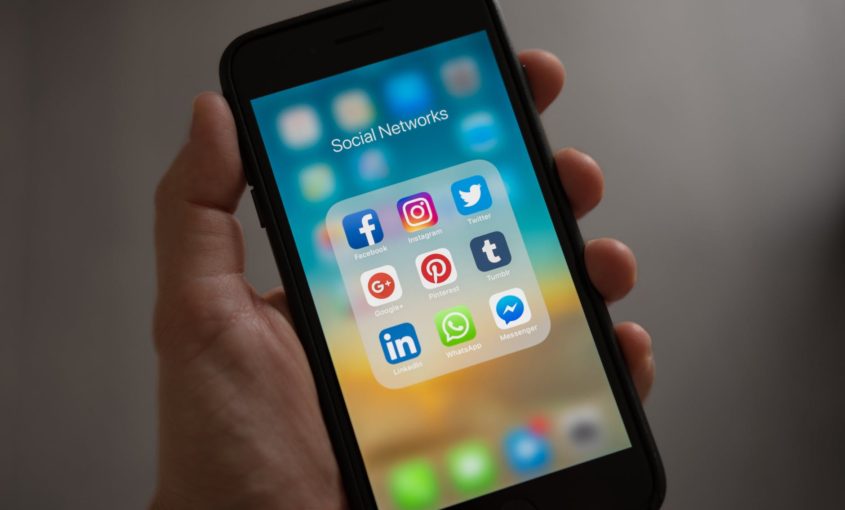Introduction
On November 3, 2019, Twitter’s CEO Jack Dorsey made an announcement confirming twitter’s stance on the heatedly debated issue of policies in regards to advertisements (ads) with political content. The stance is quite clear and it follows that of other social media platforms such as LinkedIn, TikTok and Pinterest: the ban of all ads with political content.
The official statement made by Dorsey on twitter:

However, not everyone is eager to accept these acts from social media platforms as goodwill towards making the world a more democratic and safe place for voters and the public in general.
Opinions
Nigel Gwilliam, head of digital at U.K. agency trade body of “the Institute of Practitioners in Advertising”, has come forward with the following statement:
“I don’t believe these businesses have banned political ads for the greater good of society as their primary motivation. You can imagine Dorsey, having watched the knots other tech leaders were tied up in, in front of the U.S. senators recently, not wanting to be in that position.”
It seems that Gwilliam, as well as millions of others, have watched the viral video of Alexandria Ocasio-Cortez, an American politician and activist who serves as the U.S. Representative for New York’s 14th congressional district, questioning Mark Zuckerberg about Facebook’s new policies about political ads and have come to the conclusion that no one else would like to be in Zuckerberg’s position anytime soon, thus why Twitter is now banning all ads with political content.
In the aforementioned video, Ocasio-Cortez heatedly questions Zuckerberg’s new Facebook policies about political ads, which can be summed up to this: Facebook is not going to keep checking the content of political advertising. He then concludes with a statement of “I think that lying is bad” but then explains that the public should be able to see who lies to them.
What does banning political ads cost the platforms?
According to an article posted on Digiday (Joseph, 2019), this gesture costs little to twitter while at the same time creates a better name for the platform as a whole. Twitter barely made any money from political advertisers (there were only 21 during Dorsey’s decision) according to its transparency report, while surprisingly none of them had bought ads during the EU parliamentary elections.
The Atlantic (Friedersdorf, 2019) then reports how refusing to ban or at least regulate Facebook’s political ads can lead to changing votes which on its turn can change the outcome of the lives of millions. Let us not forget the new dangers of [political] advertising such as “machine learning-based optimization of messaging and micro-targeting, unchecked misleading information, and deep fakes”.
In conclusion, if Facebook decided to one day eliminate political ads on its platform, the stakes and costs would be a lot higher since political advertising, in general, is stronger on Facebook’s platform. Facebook is considered a very strong tool globally when it comes to political advertisers. The profits lost would be a lot higher than those of other platforms such as Twitter and LinkedIn.
What is your opinion on this issue? Do you think that Facebook should ban political ads as Twitter, LinkedIn, Pinterest and TikTok have done? Could a regulation on these ads be enough? Why do you think that the other platforms have banned political ads?
Bibliography and Further Reading:
Weintraub, E. (2019). Don’t abolish political ads on social media. Stop microtargeting.. [online] The Washington Post. Available at: https://www.washingtonpost.com/opinions/2019/11/01/dont-abolish-political-ads-social-media-stop-microtargeting/ [Accessed 18 Nov. 2019].
Digiday. (2019). Political ads take center stage in battle between social networks – Digiday. [online] Available at: https://digiday.com/marketing/political-ads-take-center-stage-battle-social-networks/?utm_medium=email&utm_campaign=digidaydis&utm_source=uk&DM2=&utm_content=191104 [Accessed 18 Nov. 2019].
Halpern, S., O’Rourke, M., Kauffman, J., Gessen, M., Glasser, S., Talbot, M., Gessen, M., Marantz, A., O’Rourke, M. and Kauffman, J. (2019). The Problem of Political Advertising on Social Media. [online] The New Yorker. Available at: https://www.newyorker.com/tech/annals-of-technology/the-problem-of-political-advertising-on-social-media# [Accessed 18 Nov. 2019].
Friedersdorf, C. (2019). Doubt Anyone Who’s Confident That Facebook Should Ban Political Ads. [online] The Atlantic. Available at: https://www.theatlantic.com/ideas/archive/2019/11/twitter-facebook-political-ads/601174/ [Accessed 18 Nov. 2019].
Feiner, L. (2019). Both Facebook and Twitter are getting it wrong when it comes to political ads. [online] CNBC. Available at: https://www.cnbc.com/2019/11/03/facebook-and-twitter-get-it-wrong-when-it-comes-to-political-ads.html [Accessed 18 Nov. 2019].
Danezis, C. (2019). Deepfakes – Η νέα απειλή στις αίθουσες σύνταξης – Sigma Live Network. [online] Sigma Live Network. Available at: https://sigmalivenetwork.com/2019/10/12/deepfakes-%ce%b7-%ce%bd%ce%ad%ce%b1-%ce%b1%cf%80%ce%b5%ce%b9%ce%bb%ce%ae-%cf%83%cf%84%ce%b9%cf%83-%ce%b1%ce%b9%ce%b8%ce%bf%cf%85%cf%83%ce%b5%cf%83-%cf%83%cf%85%ce%bd%cf%84%ce%b1%ce%be%ce%b7%cf%83/ [Accessed 18 Nov. 2019].
Wood, C. (2019). Alexandria Ocasio-Cortez and Elizabeth Warren got behind the Facebook employees slamming Mark Zuckerberg for allowing lies in political ads. [online] Business Insider. Available at: https://www.businessinsider.com/aoc-and-warren-back-facebook-employees-over-political-ads-criticism-2019-10 [Accessed 7 Nov. 2019].
Charalampous, S. (2019). The Taboola and Outbrain merger: A new player in the advertising game – Sigma Live Network. [online] Sigma Live Network. Available at: https://sigmalivenetwork.com/2019/10/30/the-taboola-and-outbrain-a-new-player-in-the-advertising-game/ [Accessed 7 Nov. 2019].

